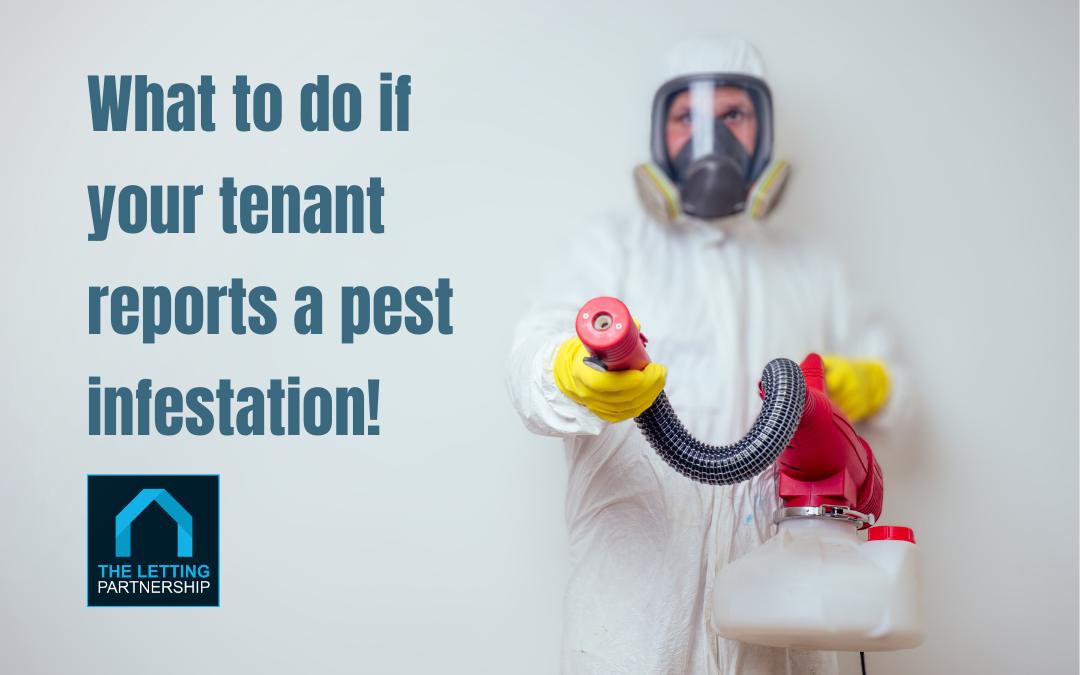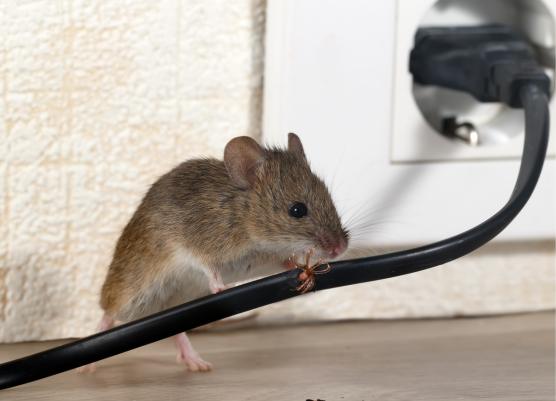If you find yourself in the unfortunate position of a tenant reporting a pest problem in a rental property, it’s a critical issue that requires immediate and appropriate action.
When a tenant reports a pest infestation, you should remember that they are likely to be wondering if it’s their responsibility to deal with, or if it is expected to be handled by their landlord and you, their letting agent.
So, here is all the important information and advice you need so that you know what to do if a tenant reports a pest infestation in their rented property.
What are Pest Infestations?
Pest infestations happen when any type of pests such as wasps, mice, rats, bedbugs, or cockroaches infiltrate a property. As you might imagine, they’re a significant problem, as pests can cause damage to a home and can also trigger diseases. Therefore, the faster the problem can be identified and addressed, the easier it will be to resolve.
When it comes to resolving the problem of pests in a rental property, the responsibility will either fall to the tenant or to the landlord, depending on the circumstances. If you are a letting agent who is managing the property, you will need to liaise with the landlord so that he is fully informed.
Let’s look at when the responsibility is the tenants, and when the matter is the responsibility of the landlord.
When is a Tenant Responsible for Dealing with Pest Infestations?
In general, the responsibility for resolving a pest infestation will fall on the party that caused the situation that allowed pests to infiltrate the property in the first place.
As an example, if a tenant has failed to dispose of household rubbish properly and, as a result a rodent or insect infestation has developed, it is the tenants’ fault that the pest problem has occurred and, therefore, it is their responsibility to resolve it.
A second example might be if a tenant keeps a pet and leaves bowls of uneaten pet food uncovered. Mice will be drawn to the smell and once they realise it’s an easy food source, they will set up home nearby. Mice have a gestation period of just three weeks and can reproduce up to 10 times a year, so two mice can easily become twenty mice in no time!
Flies and maggots are also pests. During the short life of a female fly (1 to 3 months) she is capable of laying 750 eggs in four or five batches. These hatch within 48 hours into maggots and then mature after 3 months into flies. Food left uncovered on worktops and rotting food left in bins will attract flies.
Fun Fact: An adult mouse can squeeze though a hole less than 2 centimetres in size!
When is a Landlord Responsible for Dealing with Pest Infestations?
A landlord has an obligation to ensure the rental property is safe and fit for habitation. Part of that includes the prevention of pest infestations. So, should a property require repairs to keep pests from being able to enter – for example holes in roofs, walls, or floors – and the landlord has failed in their responsibility to ensure the property is safe, secure, and fit to reside in, the landlord will be responsible for the cost of dealing with the pest infestation. Agents should liaise with the landlord to arrange for repairs to be carried out.
Another common type of infestation is wasps. Wasps are seasonal pests. Generally speaking, unless the wasp nest is found in an unauthorised item or structure such as a mound of rubble or tyres left by the tenant, it would be very difficult to lay the blame on either party – wasp nests just happen!
Unless it’s obvious that the pest issue has been directly caused by the tenant, the landlord usually must take responsibility for fixing the problem.
How do I Know if a Property has a Pest Infestation?
The sooner a pest infestation is dealt with, the better. Tenants have a duty to report any issues to the landlord as soon as they become aware of them, so a good relationship with the tenant is important. However, regular property inspections provide an opportunity for you as an agent look out for signs of any problems. If you are concerned that pests may be infesting a rental property, you need to know what to look for.
These are all major signs that pests and rodents may be living rent free, even if you haven’t seen them:
- Signs of gnawing and nesting
- Strange sounds and odours
- Droppings
- Damage to wires or equipment
If you spot dead bugs in the basement or cellar, around windows, or even damage to the leaves of indoor plants, this indicates that pests could be inside the property.
As a side note, if pests damage wires (for example, if mice chew through them) this could cause a fire hazard and danger to life – another reason to deal with pest infestations promptly.
What to do if a Property has a Pest Infestation
Whatever kind of pest infests the property, you should first determine why the infestation has happened – eliminating pests is one thing, but if you don’t address the cause they are likely to come back.
Cover pet food bowls
Wrap left over food in the kitchen
Keep worktops, cupboards, shelves, and floors free from crumbs
Empty bins regularly
Once you’ve pinpointed the cause of the infestation, you will be able to determine whether it’s the responsibility of the tenant to deal with the matter or whether the landlord must address it. If the responsibility of dealing with the situation falls to the landlord, they should immediately contact a reputable pest control company and arrange for the property to be treated.
Finally, it’s important to remember that when dealing with a pest infestation in a property, humane methods should be used where viable. Catch and release is the preferred option, although of course, this is not always possible. This is why a reputable pest control company should always be contacted for advice.
Useful Contacts:
Humane Wildlife Solutions use non-lethal, vegan, and humane alternatives for pest control making them family, garden, and pet friendly.
Contact your local council to find out if they provide pest control services to remove wasps, rats, mice, and bedbugs. They can also arrange to inspect the property and offer support and advice.
The British Pest Control Association can help you find trusted pest control companies in your area.
This article is intended as a guide only and does not constitute legal advice. If in doubt seek professional legal advice.
* * *
Would you like to receive our monthly Newsletter?
Sign up for our monthly Newsletter for helpful articles and regular industry updates. We promise not to spam you with hundreds of emails and you can unsubscribe at any time.




